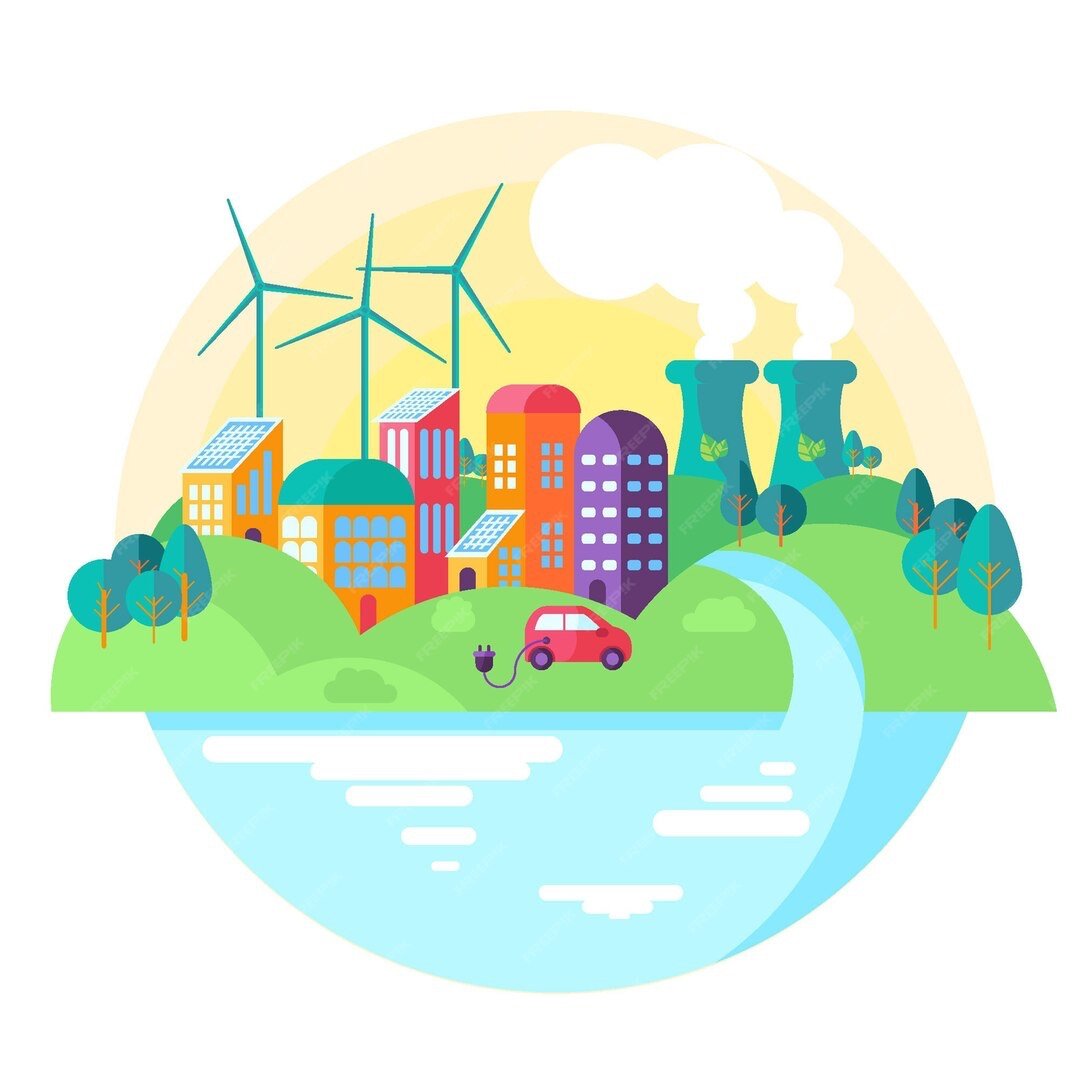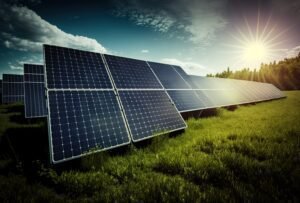In our endeavor towards a sustainable future, the synergy between two pivotal elements emerges prominently: renewable energy and water preservation. The detrimental effects of fossil fuel reliance on the environment and the escalating strain on freshwater reserves due to climatic shifts and burgeoning populations underscore the urgency of addressing these challenges. However, within this landscape of ecological concern lies a promising path forward, where the interplay between renewable energy and water conservation not only mitigates environmental degradation but also fortifies each other’s efficacy.
The Vital Interconnection: Renewable Energy’s Dependence on Water Conservation
Contrary to prevalent assumptions, not all renewable energy sources operate devoid of water usage. Here’s an elucidation of key contenders within the renewable energy spectrum:
- Hydropower: While renowned for its cleanliness, hydropower’s reliance on consistent water flow renders it susceptible to droughts, alongside the potential disruption of ecosystems during construction phases.
- Solar Power: Although solar panels entail minimal water consumption during their operational phase, water is utilized substantially in their manufacturing processes. However, prudent water management strategies during production hold the promise of mitigating this impact significantly.
- Wind Power: Unlike its counterparts, wind power boasts a negligible water footprint during its operational lifecycle.
A comprehensive study conducted by the National Renewable Energy Laboratory (NREL) in the United States in 2023 revealed a compelling insight: transitioning towards a renewable energy mix could yield substantial reductions in overall water consumption within the electricity sector. This contrasts starkly with conventional fossil fuel-powered plants, notorious for their voracious water consumption, primarily for cooling purposes. For instance, a typical coal-fired plant can withdraw millions of gallons of water daily, exacerbating water scarcity concerns.
Fostering Renewable Energy through Water Conservation Initiatives
Efforts towards water conservation play a pivotal role in optimizing the efficacy of renewable energy production:
- Safeguarding Hydropower Potential: Upholding the integrity of watersheds and adopting water-efficient practices in agriculture and industry ensures a steady water flow essential for the sustained operation of hydropower plants, thereby bolstering reliable renewable energy generation.
- Integrating Renewable Energy in Desalination Processes: Desalination, a vital process for converting saltwater to freshwater, assumes increasing significance amidst escalating water scarcity concerns. However, conventional desalination methods exhibit a notable energy-intensive footprint. By synergizing desalination with renewable energy sources like solar or wind, a sustainable solution can be crafted for regions grappling with water scarcity.
- Harnessing Solar Thermal Technologies: Solar thermal technologies hold immense potential in heating water for residential and commercial purposes, thereby diminishing reliance on conventional water heaters reliant on fossil fuels. This dual-pronged approach not only conserves water utilized in energy production but also curtails greenhouse gas emissions.
Quantifying the Impact: Statistical Revelations of the Confluence between Renewables and Water Conservation
Delving into statistical analyses unveils the profound symbiosis between renewables and water conservation:
- A report by the International Renewable Energy Agency (IRENA) in 2020 posits that by 2050, the widespread adoption of renewable energy could precipitate a 15% reduction in global water withdrawals for electricity generation.
- Estimates by the Pacific Northwest National Laboratory (PNNL) project that substituting a mere 10% of coal-fired power generation in the United States with solar photovoltaic (PV) installations could translate into a staggering saving of 140 billion gallons of water annually.
- Findings from a 2021 World Bank report underscore the transformative potential of widescale adoption of water-efficient technologies, capable of conserving adequate water resources to cater to the needs of an additional 1.6 billion individuals.
These empirical findings underscore the compelling imperative for embracing a combined approach encompassing renewable energy adoption and water conservation practices to effectuate substantial water savings.
Empowering Change: Individual and Collective Endeavors
The impetus for positive change transcends individual endeavors, permeating into communal and organizational realms. Here’s a roadmap delineating avenues for collective action:
- At the Household Level: Pioneering water conservation practices such as rectifying leaky faucets, curtailing shower durations, and integrating water-efficient appliances constitutes a tangible starting point. Concurrently, contemplating the installation of solar panels or a solar water heater holds immense promise in augmenting renewable energy utilization at the grassroots level.
- Community-Led Initiatives: Championing local initiatives geared towards rainwater harvesting, repurposing greywater for non-potable utilities, and advocating for leak detection programs serves as a testament to communal commitment towards water conservation. Furthermore, advocating for policies incentivizing renewable energy adoption and water conservation amplifies the collective impact manifold.
- Corporate Responsibility: Enterprises wield considerable influence in driving transformative change. Investing in water-saving technologies, embracing sustainable landscaping practices, and exploring renewable energy avenues like rooftop solar installations epitomize corporate stewardship towards environmental sustainability.
Technological Innovation: Pioneering Solutions for a Sustainable Tomorrow
Technological innovations are poised to catalyze the nexus between renewables and water conservation, heralding a future characterized by enhanced sustainability:
- Smart Irrigation Systems: Leveraging sensors and real-time data analytics, smart irrigation systems optimize water utilization in agriculture, thereby mitigating wastage significantly.
- Advanced Desalination Methodologies: Ongoing research endeavors are fostering the development of energy-efficient desalination techniques, including those powered by renewable energy sources. This evolution holds the promise of rendering desalination a more sustainable recourse for water-scarce regions.
- Renewable-Powered Water Treatment Facilities: Harnessing renewable energy to power wastewater treatment plants epitomizes a paradigm shift towards a more sustainable water management paradigm, thereby fostering a closed-loop approach to water conservation.
Concluding Remarks: Forging a Sustainable Epoch through Renewables and Water Conservation
In essence, renewable energy and water conservation represent not disparate aspirations but rather complementary facets of a unified endeavor towards sustainability. By embracing this holistic paradigm, we chart a trajectory towards a future characterized by clean energy proliferation and fortified water resources, ensuring a legacy of environmental stewardship for posterity. As we navigate this trajectory, let us not overlook the pivotal role of solar panel cleaning in optimizing the efficacy of solar energy generation. Embracing cutting-edge solutions such as autonomous waterless AI-enabled microfiber cloth-based solar panel cleaning robots, as pioneered by Taypro India, epitomizes our commitment to ushering in a sustainable epoch of unparalleled promise.
Learn more about Taypro’s innovative solar panel cleaning solutions.





